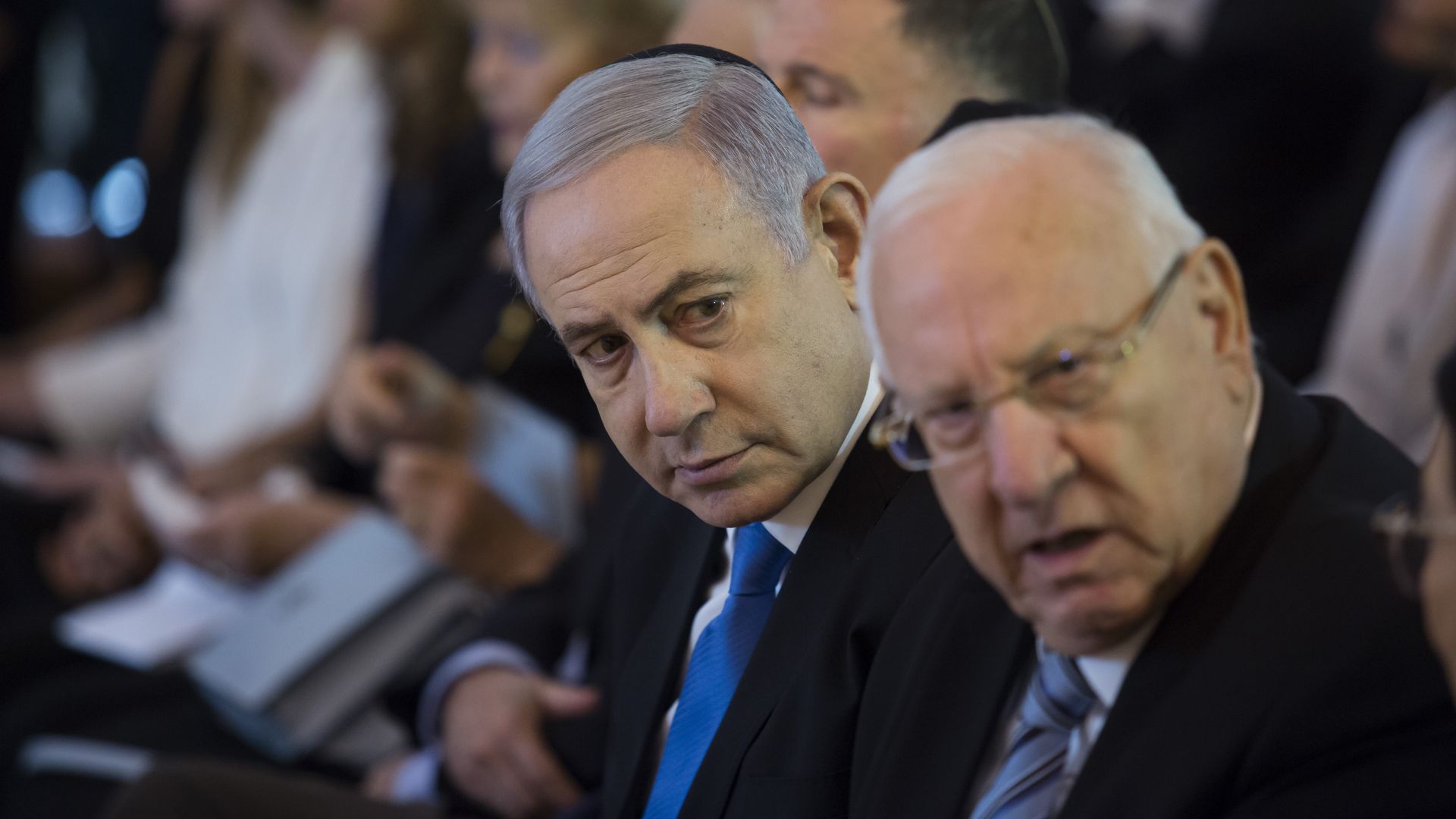Trump to release Mideast peace plan, meet with Israeli leaders
Add Axios as your preferred source to
see more of our stories on Google.

Netanyahu and Israeli President Reuven Rivlin. Photo: Amir Levy/Getty Images
Israel's embattled Prime Minister Benjamin Netanyahu and opposition leader Benny Gantz have been invited to the White House next week for discussions on President Trump's long-promised Mideast peace plan, Israeli sources say.
Driving the news: Trump said on a flight to Florida Thursday that he's "probably" going to release his Mideast plan "a little bit prior" to the meeting on Jan. 28. The meeting is set for the same time as a planned vote in the Knesset over Netanyahu's bid for immunity from prosecution on corruption charges.
- The timing also comes amid Trump's impeachment trial in the Senate and days before his scheduled Feb. 4 State of the Union address.
- A meeting now on Mideast peace could give both Netanyahu and Trump ammunition to argue they are trying to accomplish meaningful work even as they are under fire politically.
Of note: Trump added that he's spoken to the the Palestinians "briefly," adding, "They have a lot of incentive to do it. I’m sure they maybe will react negatively at first but it’s actually very positive for them."
Why it matters: The Trump administration has been considering releasing its plan ahead of Israel's March 2 elections, a controversial proposition because it could sway the election results.
- The release of the peace plan was postponed twice in the lead-up to Israeli elections, with the White House saying it did not want to interfere with Israel's political process.
Details: Vice President Mike Pence announced the joint visit following a meeting with Netanyahu at the U.S. embassy in Jerusalem. He said Trump invited Netanyahu to the White House meeting, and that at Netanyahu's recommendation, he invited Gantz to the White House too.
- Pence, traveling in Israel, has met with Blue and White party leader Gantz to discuss the issue as well. Gantz and Netanyahu declined to comment.
- Jordan's King Abdullah II recently expressed hope that a plan could allow the international community to see "the glass half full," though previously he and other Jordanian officials were wary of the White House presenting it.
Editor's note: This story has been updated with Trump's comments.
